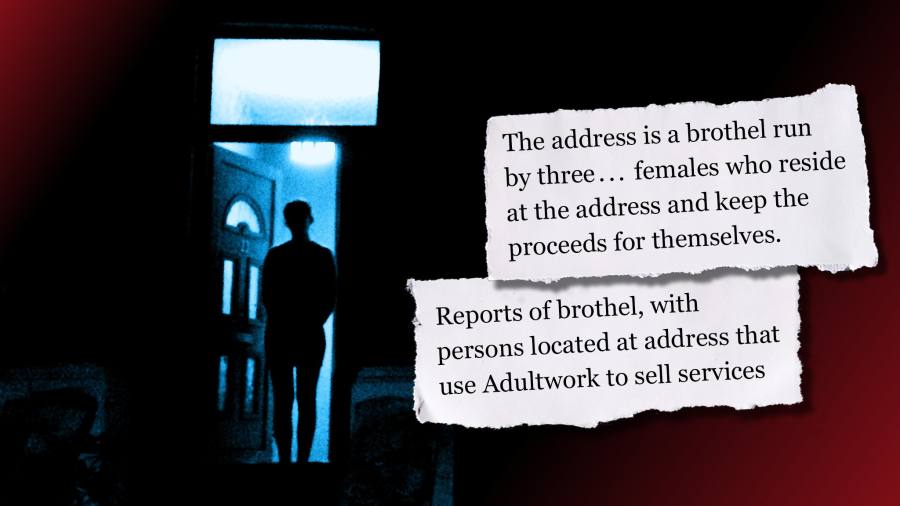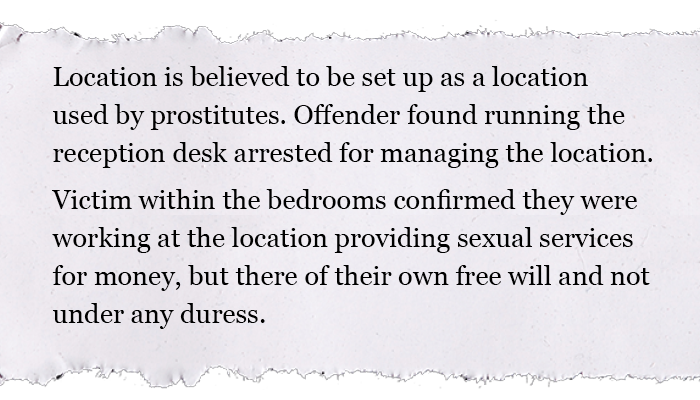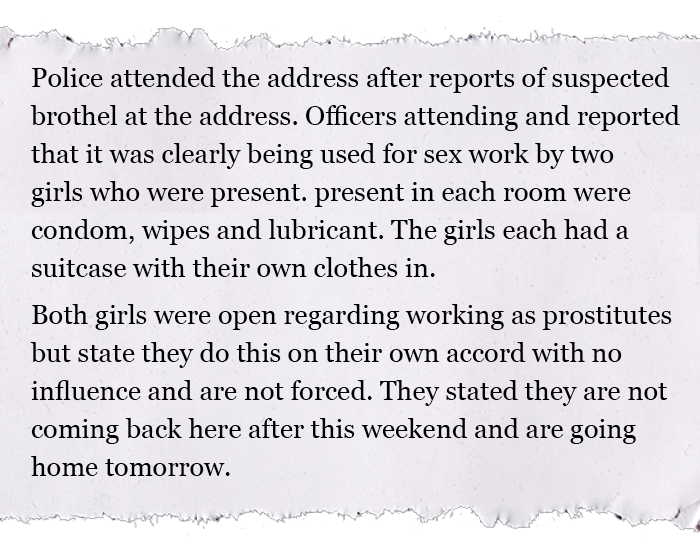
Police leaders in England and Wales are set to advise officers to turn a blind eye to sex workers who share premises for safety after the government failed to act on calls for changes to “blunt” and “outdated” prostitution laws.
The National Police Chiefs’ Council, a national body that sets the direction for policing in the UK, has drafted new guidance stating that sex workers operating or gathering together for protection should not “be criminalised”, according to two people briefed on the matter.
According to current UK law, one person may offer sexual services in exchange for money from an indoor premises. But it is illegal for more than one person to sell sex from the same building under brothel-keeping legislation dating back to the 1950s.
However, female sex workers argue that they need to work together for safety as many continue to face violence or aggression from clients.
London’s Metropolitan Police this week drew fierce criticism for treating violence against women and girls as different from “serious violence”, according to a damning report by Baroness Louise Casey.
An investigation by the Financial Times last year found that an increasing number of women turned to sex work in 2022 in order to make ends meet as living costs surged. In many cases, the nature of the sex work itself had also become more dangerous.
Advocacy groups have long warned that criminalising behaviour that enables sex workers to operate more safely is leading to unnecessary harm.

Some sex workers said they had decided to leave shared premises where they have set up security measures for fear of being criminalised.
Dan Vajzovic, NPCC lead for sex working in the UK, said he had met with government officials and recommended that they review what he called “blunt” legislation banning women from selling sex from the same premises.
Vajzovic argued that current legislation fails to adequately differentiate between women consensually selling sex together in a shared space and organised crime groups that traffic women.
“If [sex workers] think that when we knock on the door, they’re going to get prosecuted . . . they’re probably not going to have the greatest level of trust in us,” he said.
He added that those who force people into sex work can be prosecuted under other offences. The government has not yet acted on the recommendation by Vajzovic, who is also deputy chief constable of Bedfordshire Police.
Another senior officer who requested anonymity said: “We’ve got this legislation that we don’t think is right, it’s a bit outdated.” They added that the low charge rate for brothel keeping suggested that the law needed updating.
According to Ministry of Justice data, five or fewer people a year between 2018 and 2022 have been charged under this offence.
The officer added that several women had told them: “You want [our] safety, yet this legislation is crippling us because [of] overzealous police officers.”

Through Freedom of Information requests sent to police forces across the UK, the FT has identified 24 cases since 2019 where it appears that sex workers have been approached, arrested or criminalised for working together consensually.
Caroline Nokes MP, chair of the women and equalities committee, said that in an era where sex work had moved towards new types of advertising, including the subscription site OnlyFans, “we should not be reliant upon 1950s legislation and the discretion of the police”.
The new guidance is currently at draft stage and is due to be sent to police chiefs for final sign-off in May.
It says: “Sex work poses a range of risks, and sex workers gathering together at the same premises for safety should not mean they are criminalised under brothel-keeping legislation,” according to two people briefed on its contents.
It will also set out key principles for policing sex work, including “starting from a position that tackles exploitation” and “seeking to maximise safety and reduce vulnerability”.
The Home Office said: “Any amendment to legislation would require careful consideration of the link between brothels, trafficking and organised criminal gangs.”

